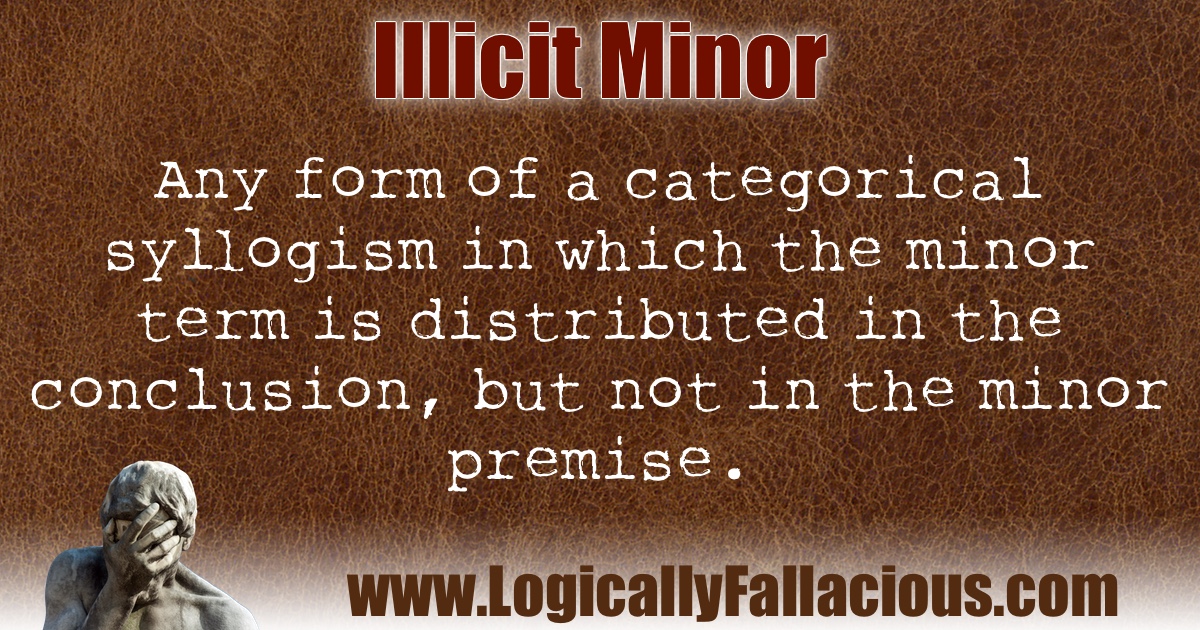(also known as: illicit process of the minor term)
Description: Any form of a categorical syllogism in which the minor term is distributed in the conclusion, but not in the minor premise.
Logical Form:
All A are B.
All B are C.
Therefore, all C are A.
Example #1:
All Catholics are Christian.
All Christians are Jesus lovers.
Therefore, all Jesus lovers are Catholic.
Explanation: In our example, the minor term is “Jesus lovers” because it is the term that appears in the minor premise (second premise) as the predicate and in the conclusion. As such, in this position, it is “undistributed”.
Example #2:
All Paul Newman movies are great.
All great movies are Oscar winners.
Therefore, all Oscar winners are Paul Newman movies.
Explanation: In our example, the minor term is “Oscar winners” because it is the term that appears in the minor premise (second premise) as the predicate and in the conclusion. As such, in this position, it is “undistributed”.
Exception: None.
Fun Fact: The Catholic bible has 73 books, the Protestant bible only has 66.
